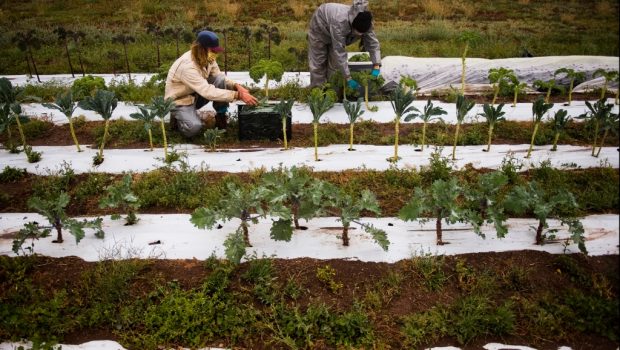Agricultural technology as part of the farm labor solution
By Adrian Card
You’ve likely noticed a shortage of workers throughout most sectors of the U.S. economy. While the reasons vary from COVID-19-related hesitancy and child care constraints to disincentives of unemployment payments, you might guess that industries that require significant physical exertion in the outdoors, such as produce farm work, tend to be the lesser choice for workers when other sectors are clamoring for new hires, offering higher wages and on-boarding bonuses.
Indeed, the CSU Extension Preliminary Findings From the 2020 Colorado Agricultural Labor Survey for Employers reports this is not a new issue for produce farm businesses, with an increasing trend of inability to secure a fully staffed workforce over the past five years, from a low of 7% shortage in 2016 to a year-over-year increase in shortage of 15% in 2020.
While wages are always part of the answer in recruiting workers, 77% of Colorado produce farms responding to the survey pay entry level workers $13 or more per hour with 35% paying $15 to $18 per hour. This is higher than the 2020 U.S. wage for all nonsupervisory farmworkers, at nearly $15 per hour.
Wages account for 30% of operating budgets on produce farms, and 69% of Boulder County produce farms struggle to remain profitable with the wages they pay. These employers surmise the top three reasons they cannot attract workers are the seasonal nature of the job (often April-October), the physical work is too difficult for most and a general lack of interest in being farm laborers.
As King Soopers starts employees at $18 per hour year-round and mostly in an air-conditioned building, it is understandable that those who qualify for those jobs will choose grocery over fieldwork.
The USDA Economic Research Service notes the average age of farmworkers — foreign- and U.S.-born — in the U.S. continues to rise from 36 in 2006 to nearly 40 in 2019. Meanwhile, the continued rise in H-2A (temporary foreign ag worker visas) workers in Colorado and nationwide points to decreasing supply of workers residing in the U.S.
Closer to home, both statewide and in Boulder County, 2020 survey responses from produce growers show both a reduction of produce acres grown and an intention to mechanize more in reaction to unresolved challenges to recruit and retain a viable workforce. The former is an unsatisfactory outcome for those who love local produce, but how to we get to the latter?
Colorado is not a leading produce-growing state compared to the coastal champions (California, Florida, etc.) and as such is not currently the hotbed for agricultural technology. However, where there is greater market for mechanization (replaces muscle) and automation (replaces decision-making), we see the next revolution in agriculture emerging.
Western Growers, a 90-year-old produce trade association in California, has launched a Global Harvest Automation Initiative through its Center for Innovation and Technology. Imagine lettuce cut by waterjets and conveyed up to a platform of workers who now stand in the shade instead of stoop in the sun to box heads of romaine.
Or consider an autonomous robot with artificial intelligence and soft robotic “hands” that can pick market-ready strawberries. Or even more sci-fi, an autonomous laser-wielding weed-killing machine that drives through the field at 5 miles per hour (fast by field standards) zapping weeds and not the crop. All of these are in use as prototypes or developed products for produce farmers to purchase.
Europe may be ahead of these trends, grappling with ag workforce shortages for longer. FIRA Agtech hosts the World Ag Robotics Forum each year and drills into the field applications plus the market and regulatory barriers to ag tech.
The future is here. Colorado produce farmers need access to labor-saving ag tech that is both the right fit and allows for rapid return on investment.
Adrian Card is the agriculture extension agent for Colorado State University Extension, Boulder County in Longmont.








Gloss